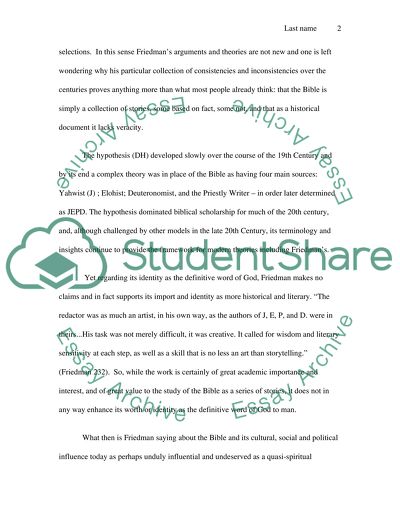Cite this document
(“Who Wrote the Bible Essay Example | Topics and Well Written Essays - 1250 words”, n.d.)
Retrieved from https://studentshare.org/literature/1569953-who-wrote-the-bible
Retrieved from https://studentshare.org/literature/1569953-who-wrote-the-bible
(Who Wrote the Bible Essay Example | Topics and Well Written Essays - 1250 Words)
https://studentshare.org/literature/1569953-who-wrote-the-bible.
https://studentshare.org/literature/1569953-who-wrote-the-bible.
“Who Wrote the Bible Essay Example | Topics and Well Written Essays - 1250 Words”, n.d. https://studentshare.org/literature/1569953-who-wrote-the-bible.


